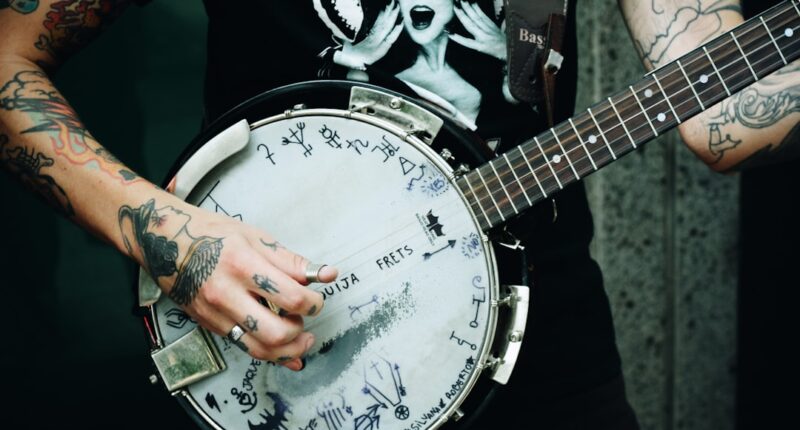In the ever-evolving music industry, having a solid marketing plan is essential for success. A music marketing plan template serves as a roadmap for musicians and music professionals to effectively promote their music and connect with their target audience. This template typically includes sections for identifying the target audience, creating compelling content, utilizing social media platforms, building relationships with influencers, leveraging email marketing, and measuring and analyzing results. By following a well-crafted marketing plan, musicians can increase their visibility, engage with fans, and ultimately drive more streams, downloads, and ticket sales.
A music marketing plan template provides a structured approach to promoting music and engaging with fans. It helps musicians and music professionals to focus their efforts and resources on activities that will yield the best results. By following a step-by-step plan, artists can ensure that they are consistently reaching out to their target audience and building a strong online presence. Additionally, a marketing plan template can help musicians stay organized and track their progress over time. This allows them to make informed decisions about their marketing strategies and adjust their approach as needed. Overall, a music marketing plan template is an invaluable tool for any musician or music professional looking to promote their music effectively.
Key Takeaways
- A music marketing plan template is essential for organizing and executing promotional efforts effectively.
- Identifying the target audience is crucial for tailoring marketing strategies and content to resonate with them.
- Creating compelling content, such as music videos, behind-the-scenes footage, and engaging social media posts, is key to capturing and maintaining audience interest.
- Utilizing social media platforms like Instagram, Facebook, and TikTok can help reach a wider audience and build a strong online presence.
- Building relationships with influencers in the music industry can help expand reach and credibility, leading to more exposure and opportunities.
Identifying Target Audience
One of the most crucial aspects of any music marketing plan is identifying the target audience. Understanding who your fans are and what they are interested in is essential for creating content that resonates with them. This involves conducting thorough market research to determine the demographics, interests, and behaviors of your target audience. By identifying your ideal fans, you can tailor your marketing efforts to effectively reach and engage with them. This may involve creating buyer personas or profiles that represent your ideal fans, including details such as age, gender, location, musical preferences, and online habits.
In addition to demographic information, it’s important to understand the psychographics of your target audience. This includes their values, attitudes, lifestyle choices, and motivations. By gaining insight into the psychographics of your fans, you can create content that speaks to their interests and resonates with their emotions. This may involve conducting surveys or interviews with existing fans to gather feedback and insights. Ultimately, by identifying your target audience, you can tailor your marketing messages and content to effectively connect with the people who are most likely to become loyal fans and supporters of your music.
Creating Compelling Content
Once you have identified your target audience, the next step in a music marketing plan is creating compelling content that resonates with your fans. This may include a variety of content types such as music videos, behind-the-scenes footage, live performances, interviews, blog posts, and social media posts. The key is to create content that is authentic, engaging, and relevant to your audience. This may involve telling a compelling story about your music journey, sharing personal insights and experiences, or providing valuable entertainment or educational content.
In addition to creating original content, it’s important to curate and share content from other sources that will be of interest to your fans. This may include sharing articles, videos, or memes related to music, entertainment, or topics that align with your brand and values. By providing a mix of original and curated content, you can keep your audience engaged and provide them with a well-rounded experience. It’s also important to consider the format of your content and ensure that it is optimized for different platforms and devices. This may involve creating content in various formats such as video, audio, images, and text to cater to different preferences and consumption habits.
Utilizing Social Media Platforms
| Social Media Platform | Number of Users (in millions) | Engagement Rate (%) |
|---|---|---|
| 2800 | 6.3 | |
| 1000 | 4.21 | |
| 330 | 3.5 | |
| 740 | 2.8 |
Social media platforms are powerful tools for promoting music and engaging with fans. As part of a music marketing plan, it’s important to identify the most relevant social media platforms for reaching your target audience. This may include platforms such as Instagram, Facebook, Twitter, YouTube, TikTok, and Snapchat. Each platform has its own unique features and audience demographics, so it’s important to tailor your content and engagement strategies accordingly.
When utilizing social media platforms, it’s important to maintain a consistent presence and engage with your audience regularly. This may involve posting content regularly, responding to comments and messages, and participating in conversations related to your music and industry. It’s also important to leverage the features of each platform such as live streaming, stories, polls, and hashtags to increase visibility and engagement. Additionally, social media advertising can be a powerful tool for reaching new fans and promoting your music to a targeted audience.
Building Relationships with Influencers
Influencer marketing has become increasingly important in the music industry as a way to reach new audiences and build credibility. As part of a music marketing plan, it’s important to identify influencers who align with your brand and values and have an audience that overlaps with your target audience. This may include music bloggers, YouTubers, Instagrammers, podcasters, and other influential individuals in the music industry.
Building relationships with influencers involves reaching out to them with personalized pitches or collaborations that provide mutual value. This may involve offering exclusive content or experiences in exchange for promotion or featuring influencers in your own content. By building authentic relationships with influencers, you can tap into their audience and leverage their credibility to increase awareness of your music.
Leveraging Email Marketing

Email marketing is a powerful tool for nurturing relationships with fans and driving engagement and sales. As part of a music marketing plan, it’s important to build an email list of fans who have opted in to receive updates from you. This may involve offering incentives such as exclusive content or discounts in exchange for signing up for your email list.
Once you have built an email list, it’s important to send regular updates and valuable content to keep your fans engaged. This may include sharing new music releases, behind-the-scenes insights, tour announcements, merchandise promotions, and personal stories. It’s also important to segment your email list based on fan preferences and behaviors to ensure that you are sending relevant content to each segment.
Measuring and Analyzing Results
Measuring and analyzing the results of your marketing efforts is essential for understanding what is working well and where there is room for improvement. As part of a music marketing plan, it’s important to set specific goals and key performance indicators (KPIs) for each marketing activity. This may include metrics such as website traffic, social media engagement, email open rates, streaming numbers, merchandise sales, and ticket sales.
By regularly tracking these metrics and analyzing the results, you can gain valuable insights into the effectiveness of your marketing strategies. This may involve using analytics tools provided by social media platforms, email marketing software, website analytics tools, and streaming platforms. By understanding which activities are driving the best results, you can optimize your marketing efforts over time and allocate resources more effectively.
In conclusion, a well-crafted music marketing plan template provides a structured approach for musicians and music professionals to promote their music effectively. By identifying the target audience, creating compelling content, utilizing social media platforms, building relationships with influencers, leveraging email marketing, and measuring results, musicians can increase their visibility and engagement with fans. Ultimately, by following a strategic marketing plan, musicians can drive more streams, downloads, ticket sales, and overall success in the competitive music industry.
Looking for a comprehensive music marketing plan template? Look no further! Our latest article on music-influencer.com provides a detailed guide on creating an effective marketing plan for your music. Whether you’re an independent artist or part of a band, this article offers valuable insights and strategies to help you promote your music and reach a wider audience. Check out the article here to get started on crafting a successful marketing plan for your music career.
FAQs
What is a music marketing plan template?
A music marketing plan template is a document that outlines the marketing strategies and tactics to promote and sell music. It includes details on target audience, promotional channels, budget, and timeline.
Why is a music marketing plan important?
A music marketing plan is important because it helps musicians and music industry professionals to strategically promote their music and reach their target audience. It provides a roadmap for marketing activities and helps to maximize the impact of promotional efforts.
What are the key components of a music marketing plan template?
Key components of a music marketing plan template include an analysis of the target audience, a SWOT analysis, marketing goals and objectives, promotional strategies, budget allocation, and a timeline for implementation.
How can a music marketing plan template help musicians and music industry professionals?
A music marketing plan template can help musicians and music industry professionals by providing a structured approach to promoting their music. It helps to identify target audience, set clear goals, allocate resources effectively, and measure the success of marketing efforts.
Where can I find a music marketing plan template?
Music marketing plan templates can be found online on various websites, or they can be created from scratch using software such as Microsoft Word or Excel. Additionally, music industry organizations and associations may offer templates or resources for creating a music marketing plan.





